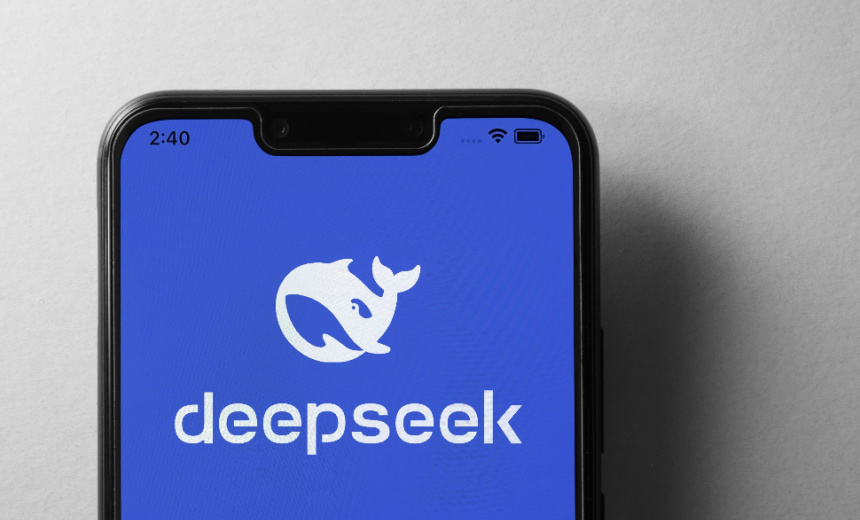Artificial Intelligence & Machine Learning
,
Next-Generation Technologies & Secure Development
Regulators Cite Privacy Concerns Over DeepSeek’s Data Collection Practices

South Korea’s data protection regulator has directed Chinese artificial intelligence company DeepSeek AI to withdraw its chatbot application from official app stores pending an inquiry into the chatbot’s compliance with data protection rules. South Korea is the latest government in the region to scrutinize the Chinese application.
See Also: 5 Myths of AI & Machine Learning Debunked
The Personal Information Protection Commission said Monday that it initiated an inquiry into the AI chatbot’s operations in South Korea to determine what personal data it collects, the legal basis for processing data, and whether it transfers collected user data to China.
“Amid media outlets voicing concerns over this AI chatbot service, the PIPC’s analysis found out traffic generated by third-party data transfers and insufficient transparency in DeepSeek’s privacy policy,” the regulator said.
The agency said it initiated an investigation into how the chatbot functions and asked the AI company to withdraw its application from application stores “until necessary updates are implemented.”
To address South Korea’s inquiry, DeepSeek AI has appointed a contact person in the country to actively cooperate with the regulator’s investigation and demonstrate its chatbot’s compliance with data protection law. The company has also agreed to withdraw its chatbot application from Apple’s App Store and the Google Play Store pending completion of the inquiry.
The regulator’s decision follows the South Korean Ministry of Industry banning government employees from accessing DeepSeek’s AI chatbot, issuing a guidance to government employees to urge caution when using generative AI services. In addition to U.S. and European countries, Australia and Taiwan also have banned government agencies and officials from using the Chinese chatbot service for official purposes (see: Asian Governments Rush to Ban DeepSeek Over Privacy Concerns).
Korean news agency Yonhap reported earlier in February that the finance ministry also planned to block access to DeepSeek’s applications from PCs connected to external networks as part of a government-wide initiative to prevent the leak of critical information through generative AI services.
The National Intelligence Service justified the ban because the chatbot application collects excessive user data, uses live user information as learning data, engages in unrestricted information sharing with advertisers and stores Korean citizens’ data in servers located in China.
The intelligence agency also found inconsistencies in how the chatbot responded to questions about China’s Northeast Project, which Koreans view as an attempt by China to claim parts of Korean history and culture as its own. The agency also found issues with the Kimchi recipe, a traditional Korean dish which China has also tried to call as its own, and the Dano festival, which China attempted to assimilate into its traditional heritage.
NIS said the chatbot, unlike other generative AI services, collects personally identifiable information such as keyboard input patterns and features a function that helps it to communicate with servers based in China. The agency warned that the functionality “may result in chat history being transmitted.”
“The National Intelligence Service distributed an official document to government ministries emphasizing the need for security precautions when utilizing generative AI such as DeepSeek,” the agency said. “In the future, the National Intelligence Service will conduct a thorough inspection of the technical safety of DeepSeek in cooperation with relevant organizations, and will provide additional explanations to the public regarding the inspection results, if necessary.”
